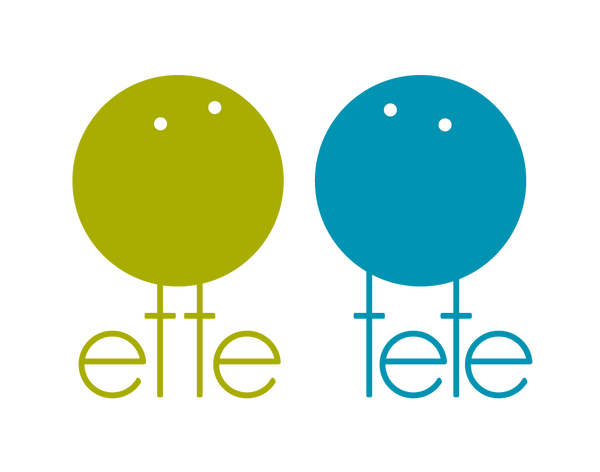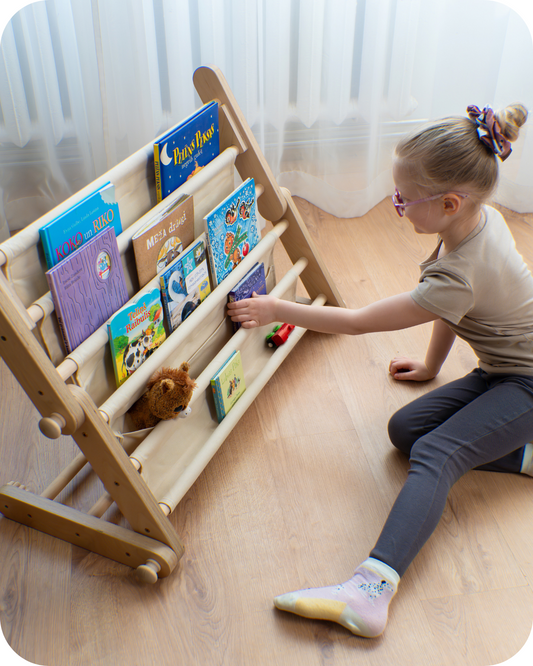Helping toddlers cope with anxiety.
During uncertain times we feel scared. We don’t know what’s ahead of us and it’s tough to plan for the future. As children feel our emotions strongly, and they have even less control over their lives, they might feel even stronger anxiety during these changes in past months. To help parents with children staying at home we interviewed a child psychiatrist Nikita Bezborodovs who gave us several actionable tips. You can find his credentials at the bottom of this post.
Content list:
What's happening to my child?
Manage your own anxiety
Emotional intelligence
Manage emotions
Talk to them
Lead by example
Rituals and routine
What’s happening to my child?
The reason we made this post was because of a huge increase in cries for help from moms being at home and their toddlers being unusually irritable, loud, chaotic, angry, and in general very uneasy. Child psychiatrist Nikita Bezborovs translates this as child anxiety showing its ugly side. We might think that children would be excited to spend more time at home with parents (and some do), and it is true with the exception that they also need the companionship of their peers, and the major change staying at home is the lack of the usual routine. Also, they might not have the problems that we face, the uncertainty of our jobs, health, and global economic situation, but children see and feel these struggles through us.
Manage your own anxiety
When we’re instructed how to drive a car or react in a plane crash (sorry for the dramatic comparison), you need to take care of yourself first to help your child. A bit of advice from the psychiatrist is to acknowledge your feelings and let yourself feel the way you do. It’s completely normal to be scared, anxious, or sad. Being in line with your feelings is a proven way to start resolving issues.
Also, an essential basic skill to develop is breathing. An activity you started right as you were born and is an essential part of our living. It's also used for maintaining our hormonal balance and maybe you’ve noticed - when you’re stressed, your body is tense and breathing is heightened. You do as you feel and you’ll feel as you do. So try slow, regular breathing with counting:
- 4 seconds in,
- 4 seconds hold,
- 4 seconds out,
- 4 seconds hold,
- Repeat
Simple. Free. Work’s wonders.
If you have time to listen to some good advice, you might enjoy these four podcasts from GoZen.
Emotional intelligence
First step. Acknowledge your own emotions - what and why you feel this. It’s completely normal to feel frustrated, unsure, and scared now. Many of us are and your feelings are unique for yourself. Accept them and don’t push them down. One of the best things you could do afterward is to explain your feelings to your child and why you have them. You might be surprised how understanding your toddler can be. Use sentences like “I feel sad because we’re not allowed to go to grandma for a long time.”
Second step. Talk about emotions by playing with dolls and act out scenes and situations with them. Also, you can try images and videos to explain it, because not all of us are innate teachers. Visuals because it’s a lot easier for a child to understand concepts when they are tied to visual cues. Well, actually, it’s easier for a person of any age. You can check out this visual compilation from Anna Freud’s center about the Coronavirus.
Third step. Teach your toddler how he feels - start from telling obvious cases when he feels angry, happy, frustrated, and don’t forget to explain what caused those feelings. Here’s a link to the Feeling wheel and start from the center to express as many feelings as possible. After some days try asking “Do you feel angry?”. Weeks or months later, you’ll hear “Mommy, I’m sad.” and after a strong hug, you’ll be filled with all kinds of proud emotions.
This will eventually teach emotional intelligence to your child - a skill that will help him thrive through tough times during his whole life. Arguably the most valuable basic soft skills out there.
Manage emotions
One great concept to understand while raising a human being is brain development. As this is a separate topic for a couple of hours, yet an essential one for understanding your child's behavior, the main thing about kids and toddlers, in particular, is to remember that they just don’t have a developed a part of the brain called prefrontal cortex - it is responsible for self-regulation. This is the reason the hardest job ever is not to eat a cookie when you’ve said that they can’t do it. It’s also the reason to cry loudly after every little misfortune (that’s not so little from their perspective) and kick someone when they are angry. As adults, we don’t do these things just because we have a prefrontal cortex that says to us “Stop! This isn’t appropriate.” Because of this reason, parents have to act as this prefrontal cortex and manage their emotions.Talk to them
A lot. One thing is about feelings and the other is about what’s happening to the family and to the society - why everyone’s at home all the time and why the routine has changed. While talking to them as equals starting from birth is one of the best ways to teach them correct talking, it’s also how they learn to understand concepts. We are there to explain things that might be too difficult for them to understand.Lead by example
Even skills that will be developed further on are first learned by looking at people with authority. Parents or kindergarten teachers. Have you noticed that kids use the same expressions as you do? So the preventive way of teaching anything is showing several times very slowly how to do it correctly instead of saying how it’s meant to work. And this goes back to previously said about managing emotions. If you’ll do it, your child will learn to do it from you.
Rituals and routine
Routine, routine, routine. You might have heard it plenty of times but why is it so important? It comes back to feeling safe. Knowing what to expect on the next day and after the next activity. And this is crucial because humans are pattern-seeking machines. For the child to feel stable and safe, a pattern is a must-have in everything you do. Starting from changing the diaper, washing up, and singing songs. Day by day, after waking up we go wash up, eat breakfast, clean our teeth, go outside to play, in about 3h we eat lunch, play inside until dinner, when we have bath time, wash our teeth, read a book, sing 3 songs and go to sleep. This can be done with visual calendars such as the one below. Allow your child to choose the activities himself so that he takes more responsibility for it.
Conclusion
Child’s anxiety roots are at the same place as our - uncertainty and inability to cope with our emotions. After all of this, we hope you manage to keep strong and withstand the troubling winds. These crazy times will pass and even if life won’t be the same as previous, people survive because we learn to adapt.
About our specialist:
Ņikita Bezborodovs
Majors degree at Riga Stradins University in Child Psychiatry specializing in ADHD diagnosis and treatment.
Internship at King's College London and Maudsley Hospital in London.
Lecturer at RSU Department of Psychiatry and Narcology.
Member of the board at the Association of Latvian Psychiatry and the Association of Latvian child psychiatry.






